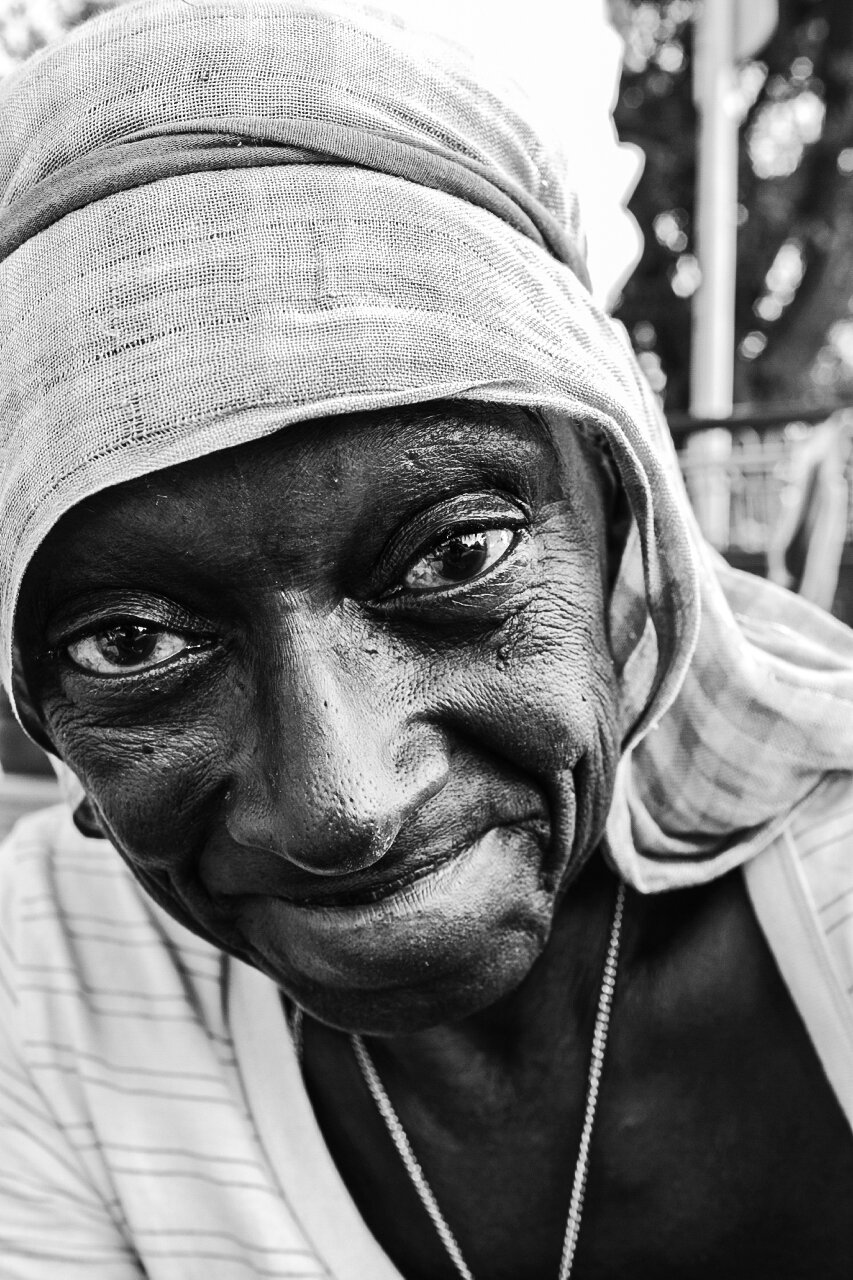Through the years, the losses have piled up for Diane Norman. The 64-year-old East Texas native has experienced different forms of homelessness since 1970, when her father, T. George Norman, died of leukemia at the age of 36.
I met Diane Saturday afternoon in North Austin, where she is calling a secluded stretch of a quiet street her temporary outdoor home. Surrounded by shopping bags, plastic water bottles, cans of food, and big garbage bags filled with her belongings, Diane is spending the hours listening to a small battery-operated radio and plotting how to get back to Fort Worth. There, up until about a month ago, she was using her monthly Social Security check to help pay for the occasional night’s stay in a motel room.
“I wanted to go ahead and die, too. ”
Diane made room for me on her street curb in North Austin, kindly offering me a soft seat on a plastic bag made plump by the blanket folded inside. She’s traveling and searching for answers. She has twice stayed in Austin before, some two decades ago, and she has lived in cities across Texas. During one particularly fascinating segment of her life, she traveled the country riding shotgun in the cabs of 18-wheelers.
As for now, Diane said she needed to return to Fort Worth to schedule some much-needed dental work. And she matter-of-factly explained that she’s thinking ahead and trying to finalize her own burial contract there.
Unable to hide the shock on my face, I told Diane that she’s young, with a lot of life ahead of her. “I think I should’ve been gone a long time ago,” she said. “It’s been scary, horribly hard. It’s been too, too, over the top, immature … ain’t nothing been grown and mature, responsible. It’s just all been so childish. It doesn’t make any sense to me.”
Diane Norman travels with a stuffed cat doll, “Kitty,” and a Reba McEntire doll that depicts the famous country-western singer.
Diane wouldn’t take any money from me. “I’m an adult, I’m supposed to be able to pay my own way,” she said. “When you’re grown, you’re supposed to be responsible, take care of your bills, stuff like that.” And she’s on the fence about whether to sign up for what she calls “Nancy Pelosi’s stimulus check,” referring to the coronavirus relief legislation that Pelosi, speaker of the U.S. House of Representatives, helped usher through in Congress.
“I mean, what good is it?” Diane asked. “And why do you need that kind of money if you’re on the streets?”
Diane shared more of her life story. Both her father and her brother, Donald Norman, who died in 2019, are buried in the East Texas town of Mount Pleasant, where she was born. She was 14 when her dad passed away in a Dallas hospital. She was extremely close to him and never recovered from the loss.
“I wanted to go ahead and die, too,” Diane said. Her dad had just started his own business, a repair company, and she was dreaming of someday helping him run the business. “He could fix anything,” she said, “washers, dryers, TVs.”
Diane wanted to stay in Dallas, where the plan was for her to be raised by her uncle. But ultimately she was forced to move to Texarkana, where her mother had moved after leaving her father in 1968. Diane didn’t want to live with her mother. She dropped out of high school. She started running away from home. She was locked up in juvenile detention centers.
At the age of 15, Diane was raped. In 1971, she swallowed a handful of pills and tried to kill herself. After listening to these harrowing details, I told Diane that she had been experiencing PTSD for a long, long time. She asked what PTSD was, and I told her that in simplest terms, it’s reliving trauma, again and again. “That’s what’s been going on,” she said. “It’s all been trauma. It’s all been trauma.”
In the 1970s, Diane earned her GED. She is the mother of two grown sons, Frederick and EJamiel, but rarely has contact with them. She still grieves her father’s death and through the years has tended to his grave in Mount Pleasant.
When you lose a loved one, Diane says, you just keep working through the pain. “You stay where that person is and visit the graveyard and put flowers on the graveyard until you realize this person’s gone,” she said. “I gotta carry on about myself.”
In terms of missing her dad, Diane said the goal is to accept “that that support ain’t there anymore. You gotta be able to take care of yourself, and he taught me to be able to take care of myself.”
For almost a month, Diane Norman has been living on a secluded street in North Austin.



